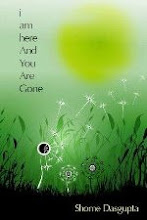Sunday, May 16, 2010
Gabriel Blackwell, On Reading
"Four days ago, I sat down at my desk to watch Eyes Without a Face (1960) a movie that I remember enjoying, for a story that I'm writing. The opening credits play over this Mobius strip of a tracking shot, spotlit trees along some dark road, with music that puts me in mind of Carnival of Souls. So far, so good. And then the real kicker: the credit for screenplay comes up, and it's Boileau-Narcejac (they wrote the novel that Hitchcock's Vertigo was taken from). Now I'm really excited. But at Doctor Genessier's speech, at about the nine-minute mark, I turn it off. The whole time I've been watching the movie, I've been thinking, 'I wish there was a book about what happens in Eyes Without a Face, so that I could read it instead of watching the movie.' There is, of course--it's based on a novel, albeit one that's not readily available in English--but that's not exactly what I have in mind. And it's not lost on me that the reason that I'm watching it in the first place is that I am, in fact, trying to write just the exact kind of thing that I do have in mind, but still, I'd rather be reading. And it gets worse: while I'm sitting at my desk, thinking that I wish there were a book about the movie Eyes Without a Face and watching the movie Eyes Without a Face, what I've really been doing is reading the book Conquest of the Useless. So when I turn the movie off, it's actually because, even though I sat down to watch a movie, now the movie that I sat down to watch is distracting me from reading this book, a book about a movie. And I know that, even though I really like Fitzcarraldo and I'd like to see it again now that I've read Herzog's book, if I put it on, I would just turn it off so that I could read some more of Andrei Tarkovsky's Sculpting in Time, or The Elephant Man, as told to Frederick Treves, the 'reminiscence' that eventually became David Lynch's The Elephant Man, which is what got me thinking about Eyes Without a Face in the first place. And this might make it seem like I'm just easily distracted, but that's not it. Because when I turned Eyes Without a Face off and gave my attention to Conquest of the Useless, I read it for three hours straight, all the way up until I had to leave for work. I could have watched Eyes Without a Face twice in that span, but four days later I'm still at that nine-minute mark. And I've read five books in those four days."
{Gabriel Blackwell's fiction has appeared in Conjunctions and The Collagist, and is forthcoming in Puerto del Sol and Conjunctions. Visit him here for more information.}
Subscribe to:
Post Comments (Atom)














I love what you say here, Gabe. Since I've been teaching this Cinefiction class, I've had similar experiences with film and books. In some ways, I think watching a movie actually requires greater reserves of concentration than a book does, in spite of all of the stereotypes. My mind can wander a little bit while watching a book, as can my gaze, whereas in a film I "might miss something." One can read with and read against, but watching a film against does not make much sense to me if it's possible at all. Anyway, cool post!
ReplyDeleteI think that's right, Tim. It seems pitiful, somehow, to say that I can't always summon the requisite concentration for watching a film, but having been a film student I know that it can be exhausting.
ReplyDeleteI'm with Lynch on this one: the big screen is the one and only appropriate medium for viewing films. Television, podcasts, etc. are all narratively already geared to the distractions that surround the small screen and do not require the ritual of the theater and the rapt gaze of the viewer. You can miss a moment because there are moments to be missed.
I used to want to read a book before the movie but now I almost enjoy it the other way. Great post :)
ReplyDelete